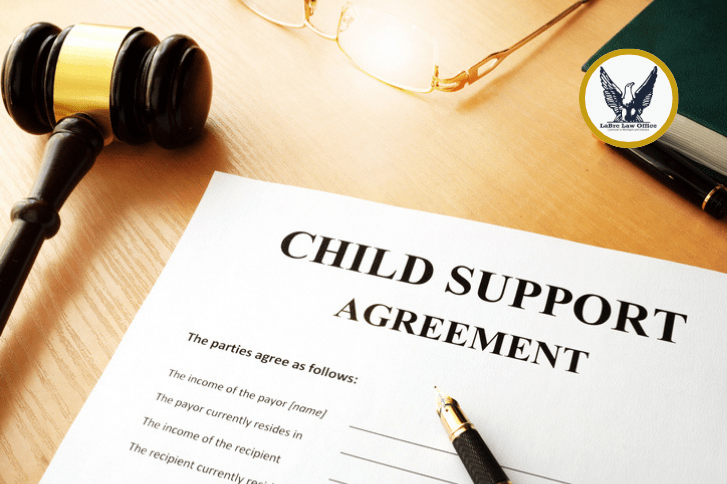Guardianship
Our Guardianship Attorney Team Will Guide and Represent You as You Seek to Establish an Appropriate Guardianship for a Loved One Who is a Minor or an Adult in Michigan or Indiana.
A Guardianship Attorney Can Help You Establish a Guardian for a Minor Child or an Adult in Michigan
Choosing a suitable guardian and fulfilling the steps to establish guardianship for a loved one can be fraught with emotional challenges — whether the ward is a minor child or an adult. The well-being and future of someone you care about deeply are at stake, often making the process a difficult and stressful endeavor. A guardianship attorney in Michigan can provide guidance and invaluable assistance throughout the many steps of this process:
- Understanding Legal Requirements: Michigan law has specific criteria and procedures for establishing guardianship. An attorney can help you understand these requirements, ensuring you’re well-prepared and informed.
- Filing Necessary Paperwork: Establishing guardianship involves several legal documents, including petitions, notices, and reports. An attorney can accurately prepare and file these documents on your behalf, avoiding costly errors or delays.
- Representation in Court: An attorney can represent you in any necessary court hearings, advocating for your case and presenting compelling evidence to support the need for guardianship.
- Ongoing Legal Advice: Once the guardianship is established, an attorney can provide ongoing legal advice to help the guardian navigate the responsibilities — ensuring compliance and fulfillment of legal obligations and making decisions in the interest of the ward.
- Guardianship Disputes: If there are disagreements over who should serve as guardian or how the guardian is performing their duties, an attorney can provide legal representation and guidance to resolve these disputes.
Establishing guardianship is a significant legal step, and having an experienced guardianship attorney by your side can make the process smoother and less daunting, providing peace of mind that your loved one’s well-being is under protection.
Contact LaBre Law Office today to schedule a consultation so we can review your unique needs and goals before guiding you through the process of establishing a guardian for your loved one.
The Responsibilities of Guardianship
The key responsibilities of a guardian for a minor child or an adult in in Michigan may include the following:
- Physical Care: The guardian is responsible for the day-to-day care of the ward, including providing food, clothing, and shelter. This also includes making arrangements for medical care and ensuring the ward’s basic physical needs are met.
- Education: For guardians of minor children, it is their responsibility to ensure the child is receiving appropriate education. This can involve enrolling the child in school, overseeing home-schooling, or arranging for special education services if needed.
- Medical Decisions: The guardian makes decisions about the ward’s healthcare. This includes choosing doctors, approving medical treatments, and making decisions about long-term care or end-of-life care.
- Financial Management: If authorized by the court, the guardian may manage the ward’s finances. This involves using the ward’s funds to pay for their living expenses, managing any investments, and maintaining accurate financial records.
- Personal Decisions: The guardian makes personal decisions on the ward’s behalf, such as where they will live and what social activities they will participate in.
- Legal Representation: The guardian acts as the legal representative of the ward. This means the guardian may initiate or defend legal actions on the ward’s behalf and make other legal decisions. The guardian may fulfill these responsibilities on the ward’s behalf in coordination with an attorney, as needed.
- Reporting to the Court: The guardian is typically required to provide regular reports to the court detailing the ward’s condition, the actions taken by the guardian, and any changes in the ward’s situation.
These responsibilities can vary depending on the specific circumstances of each guardianship case and the degree of the ward’s incapacity. It’s crucial for anyone considering guardianship to consult with an experienced guardianship lawyer to fully understand these responsibilities.
Types of Guardianship in Michigan
It is possible you may not be seeking a full guardianship in Michigan if your loved one’s condition or circumstances do not warrant giving the guardian complete overarching or permanent control over the ward’s affairs. Your guardianship attorney at LaBre Law Office can help you determine which of the different types of guardianship would be appropriate, based on the needs of the ward:
- Full Guardianship — In a full guardianship of the person, the guardian makes personal and medical treatment decisions on the behalf of the ward. In some cases, the guardian also makes financial decisions for the ward.
- Limited Guardianship — This is a less restrictive guardianship that allows a ward more autonomy according to what is appropriate for their abilities. Decisions made by the guardian are limited to those the ward needs to be made on their behalf.
- Temporary Guardianship — This type of guardianship is established for a particular purpose, and the guardianship ends once that purpose has been fulfilled. Reasons for a temporary guardianship in Michigan may involve a permanent or nonpermanent condition or status of the ward, their parent(s), or other caretaker(s). Examples may include issues involving sudden death of parent(s) or caretaker(s), absence of parent(s) or caregiver(s) due to issues like sickness or imprisonment, or an emergency situation involving injury, neglect, abuse, or financial circumstances.
- Testamentary Guardianship — If a child’s parents die and they establish a caregiver in their Last Will and Testament, this establishes a testamentary guardianship. The guardian, who is often a family member or family friend, remains intact until the ward comes of age.
- Conservatorship (Guardian of The Estate) — This relates more to estate planning law, as a conservator deals with financial matters and decisions regarding the estate and/or a Special Needs Trust prepared for the ward.
How To Become or Select a Guardian for a Child
The processes are similar for becoming a guardian for a child in Michigan, versus selecting another person to serve in this role.
Steps to Become a Guardian of a Minor Child in Michigan
- Petition for Guardianship: The first step is filing a Petition for Appointment of Guardian, Minor with the probate court in the county where the child resides.
- Notice: Notice of the hearing must be given to all interested parties, including the minor (if they are 14 years or older), the minor’s parents, and anyone else who currently has legal custody of the minor.
- Hearing: At the hearing, the court will consider whether the appointment of a guardian is in the interest of the minor. You will need to provide evidence demonstrating why the child needs a guardian and why you are the appropriate person for that role.
- Guardian Ad Litem: In some cases, the court may appoint a Guardian Ad Litem to represent the child’s interests. This individual will conduct an independent investigation of the facts and report their findings to the court.
- Appointment: If the court determines that guardianship is necessary and you are suitable, it will issue Letters of Guardianship, officially appointing you as the guardian.
Selecting Another Person as a Guardian for a Minor Child in Michigan
If you wish to nominate someone else as the child’s guardian, the process is similar to that for becoming the guardian yourself. You can nominate a guardian in your petition, explaining why you believe they would be the right choice. The nominated person must consent to the guardianship and meet the suitability requirements.
In both cases, a Michigan guardianship attorney can be invaluable, helping you prepare and file the necessary paperwork, representing you at the hearing, and guiding you through the complex legal process. A family law attorney experienced in guardianship for minor children can help you with choosing an appropriate guardian, ensuring the decision aligns with the child’s interests.
Requirements For a Guardian
There are many important requirements and necessary characteristics for someone to serve as a guardian of a minor child or an adult in the state of Michigan.
Legal Requirements for a Guardian:
- Age: The person must be at least 18 years old.
- Suitability: The person must be suitable to fulfill the role. This means they should be capable of providing an appropriate level of care and have a genuine interest in the welfare of the minor or adult.
- Consent: The person must be willing to accept the role of guardian.
- Criminal Background: A criminal background check is usually required. Serious criminal convictions may disqualify a potential guardian.
Personal Characteristics Necessary for a Guardian:
- Responsible: Guardianship is a significant responsibility and requires a high level of reliability and accountability.
- Patient and Understanding: The role often involves managing complex situations and making difficult decisions, requiring patience and understanding.
- Good Judgment: A guardian must make decisions in the interest of the ward, which requires good judgment and the ability to consider all aspects of a situation.
Personal Characteristics Preventing Someone from Serving as a Guardian:
- Criminal History: A serious criminal history, particularly involving offenses against children or vulnerable adults, can disqualify someone from serving as a guardian.
- Conflicting Interests: If a potential guardian has interests that could conflict with those of the ward, they may not be eligible.
- Incapacity: A person may be ineligible if they are incapable of providing the necessary care and supervision due to physical illness, mental disability, or other reasons.
Your attorney can help you navigate the process of choosing or becoming a guardian, ensuring the selected guardian meets all the requirements and is well-prepared for the responsibilities involved.
Guardianship of an Adult
The role of a guardian for an adult carries significant responsibilities and tasks, and pursuing legal guardianship for adults in Michigan can pose certain challenges.
Responsibilities and Tasks for a Guardian of an Adult
- Care for the Ward: The guardian is responsible for ensuring the ward’s personal and physical well-being. This includes providing or arranging for food, clothing, shelter, and medical care.
- Decision Making: The guardian makes personal decisions on behalf of the ward, such as where they will live and what medical treatments they will receive.
- Financial Management: If authorized by the court, the guardian may also manage the ward’s finances, including paying bills, managing investments, and maintaining accurate financial records.
- Legal Representation: The guardian represents the ward in legal matters in coordination with an attorney (if the guardian is not an attorney), which may include initiating or defending legal actions on their behalf.
- Reporting to the Court: The guardian is typically required to provide annual reports to the court detailing their actions on the ward’s behalf and the ward’s condition.
Challenges of Acting as a Guardian for an Adult
- Time and Effort: Acting as a guardian can be time-consuming and require significant effort, especially if the ward has complex needs.
- Difficult Decisions: The guardian may need to make difficult decisions, such as those involving medical treatment or end-of-life care.
- Emotional Stress: The role of a guardian for an adult can be emotionally challenging, particularly when dealing with a ward who is resistant to assistance or dealing with a serious illness.
- Potential Legal Disputes: Disagreements may arise among family members or between the guardian and the ward, leading to potential legal disputes.
How Long Does a Guardianship Last?
The duration of guardianship in Michigan can vary depending on the circumstances of each case.
Guardianship of a Minor Child: A guardianship of a minor typically lasts until the child turns 18 years old, at which point the guardianship automatically terminates. However, the court may end the guardianship earlier if it finds that a guardianship is no longer necessary or beneficial for the minor. The guardianship can also be ended if the guardian or another interested party petitions the court to terminate it and the court agrees.
Guardianship of an Adult: A guardianship of an adult usually continues until the ward’s death. However, it can be terminated earlier if the ward regains capacity and is able to manage their own personal and financial affairs. The ward, the guardian, or another interested party can petition the court to end the guardianship. If the court agrees, the guardianship will be terminated.
In both types of guardianships, the guardianship will also end if the guardian resigns or is removed by the court. If the guardian dies, becomes incapacitated, or is found to be unsuitable, the court will appoint a new guardian. All changes in guardianship status must be approved by the court. Discuss any questions or concerns with your guardianship lawyer.
Differentiating Guardianship from Adoption and Custody
Guardianship, adoption, and custody are three distinct legal concepts, each with different rights, responsibilities, and relationships involved. Guardianship is a legal relationship that is often temporary or conditional, involving responsibility for personal and/or financial affairs and decisions that can involve educational or medical concerns.
In contrast to guardianship, adoption is a permanent legal process where an individual or couple would become the legal parent(s) of a child. This permanently severs the legal ties between the child and the biological parents. Adoptive parents have the same rights and responsibilities as biological parents. They must provide for the child’s physical, emotional, and financial needs until the child reaches adulthood. Once an adoption is finalized, it is permanent and cannot be revoked except under very rare circumstances.
Custody shares much in common with the responsibilities of a guardian, as it refers to the legal and practical relationship between a parent and their child — including the right to make decisions for the child and the duty to care for them. In sole custody, one parent has the rights and responsibilities, whereas in joint custody, both parents share the rights and responsibilities.
Custody arrangements are typically part of a divorce or separation proceeding, but they can also be established for parents who were never married. Custody is subject to modification based on changes in circumstances and always with the child’s interest in mind.
Each of these relationships carries different levels of responsibility and permanency, and the choice between them depends on the specific circumstances of each case. Consult with your family law attorney to determine the appropriate options for your loved one.
Contact LaBre Law Office to Discuss Guardianship Options and Begin Planning Your Legal Steps
There are unique challenges associated with establishing guardianship and fulfilling associated responsibilities in caring for the needs and interests of a loved one. At LaBre Law Office, we have over four decades of experience guiding individuals and families and navigating legal issues that have profound implications for their futures and our shared community.
Our experienced guardianship attorney team is here to help you make wise and appropriate decisions regarding the well-being of the people you love. We serve clients throughout the “Michiana” area, as we are licensed on both sides of the Michigan-Indiana border.
Contact LaBre Law Office today to schedule a consultation. We will discuss your unique concerns and goals in relation to the needs of your loved one, and we will identify your next steps toward selecting and establishing an appropriate guardian.
LaBre Law Office — Excellence is Our Standard
Contact Us
Every situation is different and requires personalized legal strategy and attention. Tell us about your current situation and we would be happy to discuss your legal options. We have the skills, experience and resources needed to provide you with compassionate legal service.
* Required Fields
We respect your privacy. The information you provide will be used to answer your question or to schedule an Appointment if requested.
Schedule A Consultation
Why Choose LaBre Law Office?
Our clients in the Michiana area have confidence when LaBre Law Office handles their legal issues because our general practice law firm has established a record as a trusted member of the community for over four decades, serving our neighbors:
- Caring, aggressive advocacy for your interests in many practice areas
- We represent clients in both Michigan and Indiana
- Straightforward, assertive, and dependable guidance
- Unique legal strategies tailored to each specific case
- We fully address your concerns so you always understand your case’s status
- We will be here for you long after your legal issue is resolved
Excellence is our standard. Call today to schedule a consultation.
Dedicated To Client Satisfaction
What they say about us
Our Blogs
Recent Blogs & News

Factors that May Affect Your Michigan Spousal Support
Navigating the complex landscape of divorce can be a challenging and emotionally charged process. Among…

Mieke V. Weissert Attends ICLE’s 22nd Annual Family Law Seminar
EDWARDSBURG, Michigan—LaBre Law Office, a general practice law firm with offices in Michigan and Indiana,…

How Does Child Support Work in Michigan?
Across the United States, parents have a legal obligation to financially support their minor children.…
